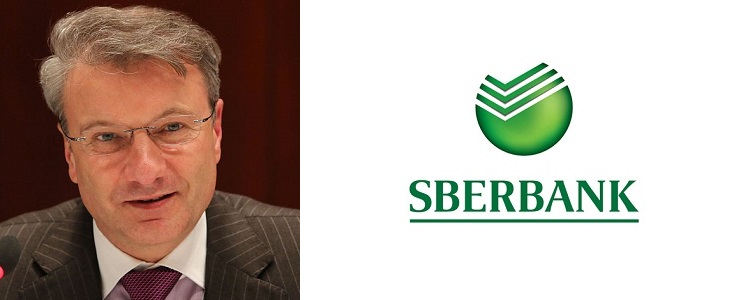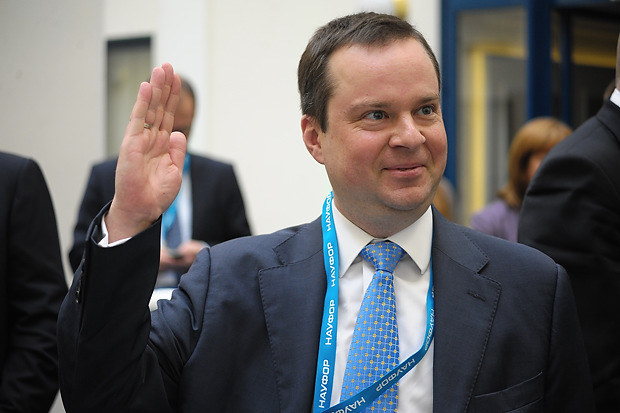Despite the fact that top-managers of Russian financial institutions have spoken out in favour of Bitcoin and Blockchain, state authorities keep banning the use of all cryptocurrencies, at the same time planning to introduce the country’s own digital currency.
Making sense of arguments
The Russian state is often seen as highly bureaucratic, inefficient, cumbersome, and unresponsive to the needs of its citizens, as well as potentially limiting freedom of choice. Currently it has been vigorously defending and guarding itself from a bizarre phenomenon, which has nevertheless been widely used globally - a Blockchain technology.
Opinions on the matter are divided. Sadly, those in power to decide on the future of Blockchain happen to be on the other side of the barricades.
The Ministry of Finance and the Investigation Committee of the Russian Federation suggested imposing criminal liability for the use of cryptocurrencies. Earlier last year the authorities were somewhat more tolerant towards technology but today their position is strongly oppositional.
Dmitry Marinichev, the President’s Internet ombudsman, recently expressed his concern about Blockchain and everything related to Blockchain being considered a potential threat. Unsurprisingly, the Russian government is keen to preserve the status quo.
At the discussion forum “Perspectives of application and development of Blockchain technologies in Russia” Dmitry Marinichev said that any attempt by the state to intervene in the process of the introduction of Blockchain technologies by businesses and impose a ban on the use of Bitcoin made absolutely no sense. He strongly believes that instead of limiting the use of cryptocurrencies, the government should facilitate both their development and the development of technologies underpinning them.
Marinichev says on distributed ledger technology:
“We will only see a positive effect for businesses if the concept of distributed ledger technology is identified and regulatory framework is introduced”.

Recognized potential of Blockchain
Another cluster of institutions is rather open to the changes that Blockchain technology might bring. For instance, the Central Bank of Russia, the main financial regulator, chose to study technology to learn more about ‘the alien’ coming from the West and then came to a conclusion over its potential for the country’s financial industry. For that purpose it has created a special department.
The head of the Central Bank, Elvira Nabiullina said that it is very important to draw a line between the use of Bitcoins and application of Blockchain technology. She strongly believes that the potential for the latter is vast.
The largest payment service Qiwi and the biggest bank of Russia Sberbank are among advocates of Blockchain technology. Thus, earlier this year Qiwi announced the launch of its own digital currency Bitrouble.
Herman Gref, CEO, Chairman of the Executive Board of Sberbank of Russia, strongly disagrees with the attempts to limit the use of digital currencies in Russia and called on the authorities to stop exaggerating their threats.
He says about Bitcoin and Blockchain:
“Most certainly Bitcoin is not something that should be banned. Blockchain is a new internet. I mean, it is the innovation of the same level and importance as the Internet. What we see now is absolutely unacceptable: technology is only starting to develop into something sound, and our authorities have already said no to it. Then they said we cannot buy cryptocurrencies, now they are saying that those who buy them will be locked up behind the bars. Are you sure this is the right decision to make to ensure advances and progress? I don’t think so. If Blockchain is banned we risk seeing the progress going somewhere else overseas and we risk losing professionals and experts who would leave the country to seek a more friendly environment and legislation.”
Moreover, Gref is positive about the impact Blockchain technology might have on all industries without exception, He therefore believes that Russia should not miss out on this new revolutionary technology.

Blockchain to revolutionize ideas of how things work
Many banks understand that introducing Blockchain technology will significantly change the whole system, its logic and mechanisms. The main advantage of Blockchain and cryptocurrencies when compared to traditional currencies is the absence of middlemen.
Today, all operations with money, documents and data require participation of a third party. Banks, state authorities and notaries have to approve the legitimacy of deals. As Blockchain is totally decentralized and controlled by members of the community, it significantly simplifies the procedure and discards the middlemen.
Simply put, if introduced to everyday life, Blockchain technology will eliminate the need of banks, some of the state authorities, auditors, insurance companies and registers. The technology is able to alter the relationship between the state and its citizens.
Databases developed using Blockchain technology might be used to keep not only information about financial transactions and credit obligations, but also about registered marriages and migration registration. No wonder state authorities are opposing the introduction of technology.
Besides, other concerns of the state officials opposing digital currencies are related to their shady reputation - too many examples of them using Bitcoin for deals with drugs, weapons and other illegal actions. In this instance, the introduction of regulations makes sense, because there might be certain threats behind the use of Bitcoin related to the anonymity of transactions and their transborder and global character.
The development of regulatory framework appears to be one of the greatest challenges faced by state authorities. Currently there are no legal restrictions that concern Blockchain technology. However, imposing bans on the use of digital currencies will affect many business processes.
It’s about time
Many experts believe that the current economical situation can facilitate the introduction of new technologies. As with any other innovation, Blockchain causes many debates both nationally and internationally. Both opponents and advocates agree on one thing - Blockchain is one of the most important inventions of the last decade as it is able to revolutionize the financial industry, cyber security and the education industries. Why not start with clearing up a regulatory framework?
If Blockchain technology is widely applied by both the Russian and international banks, the country might obtain the chance to get around any sanctions. For instance, the introduction of Blockchain will allow the departure from the international interbank financial telecommunication system SWIFT.
At every parliamentary session Russian policy-makers claim that their main priority and aspiration is to ensure the sustainable development of the country in all spheres and to accelerate technological evolution. In practice, however, they are still afraid of innovation and prefer to stick to familiar things, even though they are outdated.
While politicians cannot make up their minds whether to love or hate Bitcoin and Blockchain, users are protesting:
“Bitcoin is the easiest and the most convenient way to make financial transactions. To send Bitcoin from Moscow to Irkutsk I only need to know the wallet address. On the contrary, to send roubles I would need a lot of bank information. Besides, it takes so much time and will be subject to a service fee. Apparently, the state is banning cryptocurrencies to keep this illusion of the need for banks and necessity for service fees alive.”
When you nod your head yes but you wanna say no
One of the latest ‘advances of’ Russian policy-makers was the introduction of a draft law restricting the use of Bitcoin.
Aleksey Moiseev, Deputy Finance Minister of the Russian Federation says:
“The Ministry has prepared the draft law implying criminal sanctions for operations with Bitcoin. However, the draft law does not mean a ban on cryptocurrencies, but the ban of the exchange of Bitcoin for the national currency of Roubles. Miners and traders on international exchanges should not worry, as if the law is passed it will not affect them.”
Simply put, you are allowed to trade Bitcoin in Russia, just don’t let them see it, trade in other currencies and they are OK with that. So, we are left to see what will happen in the next round of this endless game.
Thus, the recent move of the Federal Financial Monitoring Service (Rosfinmonitoring), according to the Kommersant newspaper, was to start planning the introduction of Russia’s own cryptocurrency. According to the proposal, citizens will be able to exchange Russian roubles and other currencies for the cryptocurrency only on special online platforms. The process will require a person’s identification in order ‘to minimize anonymous transfers.’ Rosfinmonitoring has reportedly started talks with the Finance Ministry and Central Bank officials on the idea.

